For those who have known 1. FC Union Berlin for years, or perhaps even decades, they might think that the limit has been reached.
Shortly after, however, they find themselves needing to pinch themselves and rub their eyes because there’s another flagpole standing behind the first one — and another one after that, which wasn’t there before.
This has been going on for a while now, and it just doesn’t stop.
In the vibrant tapestry of German football, Union Berlin emerges as a unique contender, defined not just by their on-field prowess but also by their indomitable spirit and unbreakable bond with their devoted fans.
At the helm of this enigmatic footballing force stands Swiss head coach Urs Fischer, a strategist who masterfully weaves a defensive symphony on the pitch.
This tactical analysis delves into the intricate fabric of Union Berlin’s playing style under Fischer’s stewardship, where defensive solidity is not just a mere strategy but a way of life.
Beyond the tactical intricacies, Union Berlin’s identity is inseparable from the passionate ethos that both team and supporters embody.
The love for the game transcends the boundaries of the pitch, uniting a sea of red and white in a fervent embrace of the club’s underdog spirit.
The fans, echoing Fischer’s values, relish the opportunity to lock horns with formidable opponents and never shy away from the fight.
This scout report navigates through the layers of Fischer’s tactics, the team’s defensive resilience, and the symbiotic relationship between the coach’s philosophy and the fans’ unwavering loyalty.
As Union Berlin continue to carve their own path in the Bundesliga, this analysis aims to unravel the nuances of their defensive strategy, examining how Fischer’s tactical blueprint resonates with the club’s fighting spirit and, ultimately, whether this amalgamation can propel them to further success on the grand stage of German and European football.
Initial Position
Union Berlin significantly outperformed expectations in the past season, securing a spot in the top four.
However, this was also influenced by Bayer Leverkusen’s disastrous start.
The style of play for the Köpenick-based team is not necessarily focused on attractive football.
They prioritise a solid defensive setup and then look to capitalise on counterattacks.
Among all the teams in the previous season, there was the highest discrepancy between xPoints/xGoals and the actual final position.
After 34 matchdays, the club had scored 16 more goals and earned 20 more points than projected.
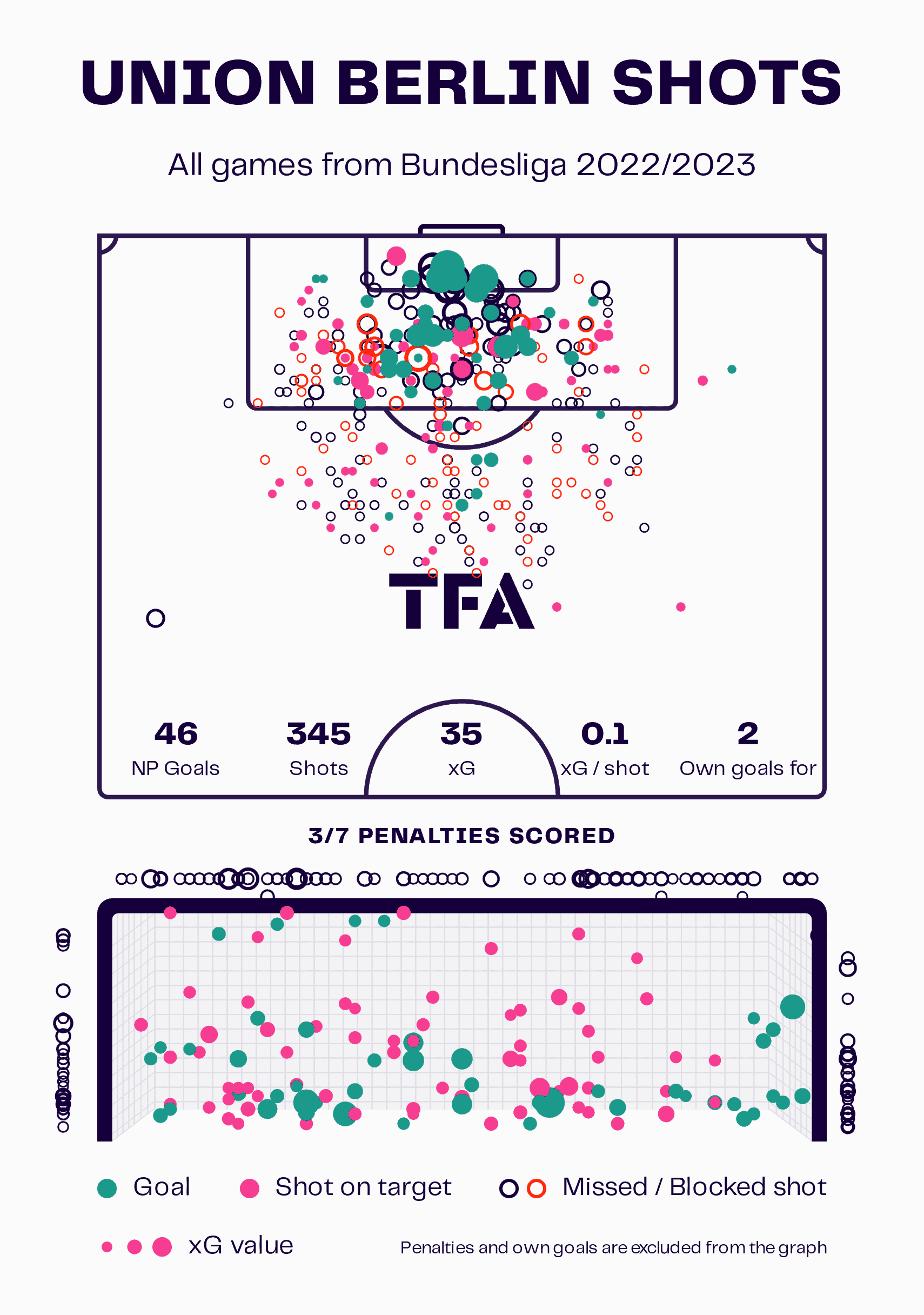
Thanks to a header hat-trick from Kevin Behrens and a goal from Milos Pantovic, 1.
FC Union Berlin started the 2023/24 Bundesliga season by defeating FSV Mainz 05 with a convincing score of 4-1.
Despite Ludovic Ajorque missing two penalties and only Anthony Caci scoring for the Rhineland team, the match ended with a clear victory for Union.
The upcoming schedule featuring Darmstadt, Leipzig, Wolfsburg, and Hoffenheim seems manageable and balanced.
Typically, Union doesn’t excel against deep-lying teams like Darmstadt, as they are forced to control the game, which doesn’t align with their philosophy.
On the other hand, there could be more potential against Leipzig and Wolfsburg.
Fischer’s Tactics
Union Berlin’s system has not changed compared to last season.
They play mostly in a 3-1-4-2 and act defensively, incredibly compact and disciplined but mercilessly effective up front.
Operating on the premise of control, Union often initiates their play from the defensive ranks, building a solid foundation for their attacking endeavours.
A striking feature of Union’s in-possession strategy revolves around their adept utilisation of wide areas.
Deploying a structured and patient approach, they frequently extend their play to the flanks, relying on brief passing combinations to carve out opportune positions for crossing.
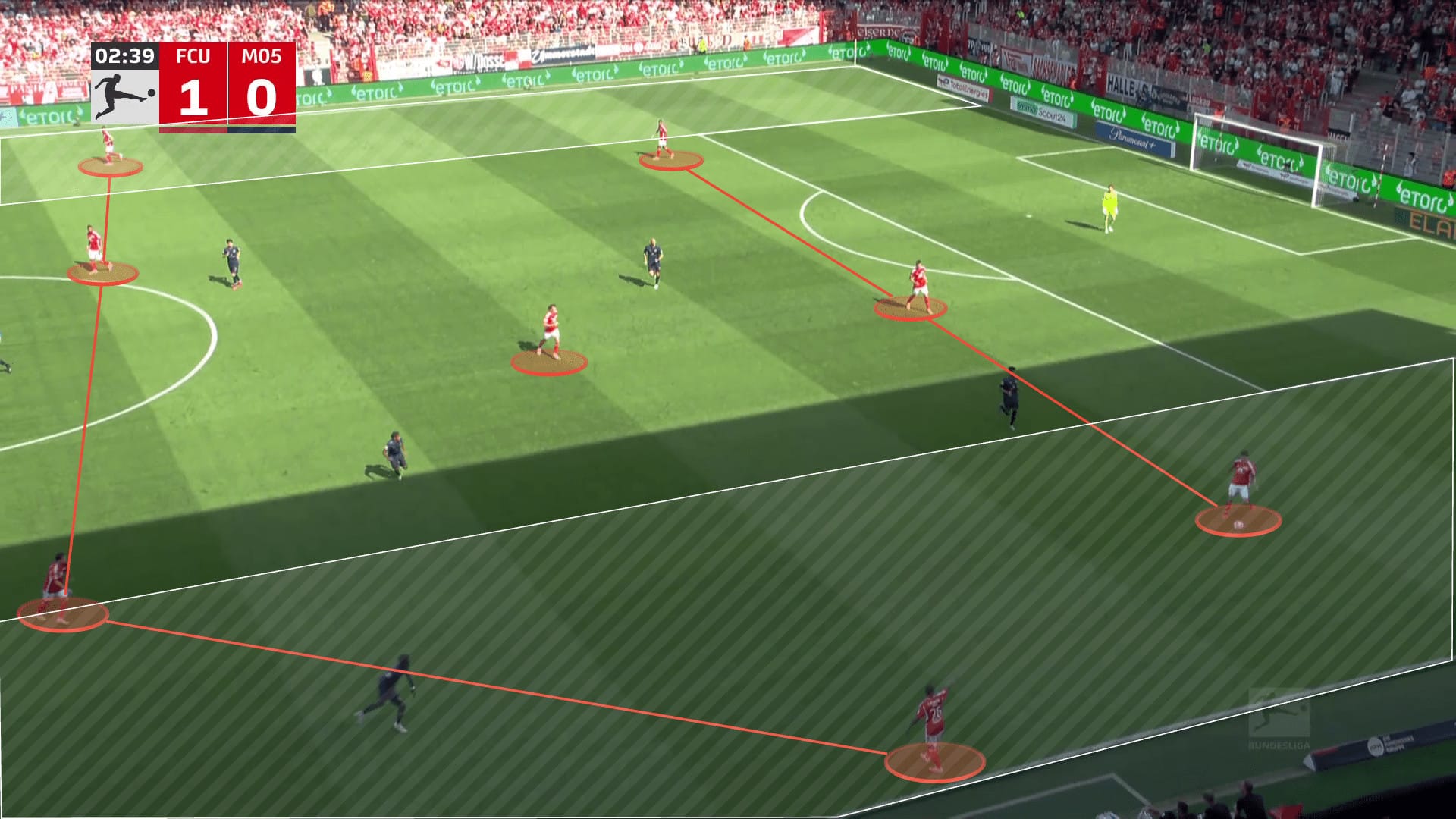
A notable trait of Union’s possession-oriented play is their willingness to concede the initiative to their opponents.
This calculated approach encourages pressure and serves as a foundation for their transitional exploits.
This pragmatic mindset is further reflected in their build-up tactics.
Union prioritise swift advancement upon securing possession, seeking to propel the ball forward immediately.
This approach results in a notable prevalence of long ball distribution.
This also has manifested in fewer instances of dribbling attempts and progressive runs during their attacking build-up.
They prefer to expedite ball movement towards advanced sectors, favouring collective transitions over individual progression.
This approach resonates with their overarching ethos of efficiency and rapid decision-making.
A standout feature of Union’s attacking arsenal lies in their exceptional cross-success rate, which has soared to an impressive 41.5%.
Remarkably, this figure positions them as the most proficient team in this aspect among the top five European leagues.
A pivotal element of this success lies in their strategic balance on both flanks, a key factor in their equation for offensive potency.
Intriguingly, Union has achieved parity in their cross-success rates from both the left and right flanks.
This symmetric approach significantly complicates opponents’ defensive calculations, thwarting any attempt to concentrate defensive efforts on specific areas.
The result is an intricate web of attack that spans both flanks, confounding opponents and enabling Union to breach defensive lines more effectively.
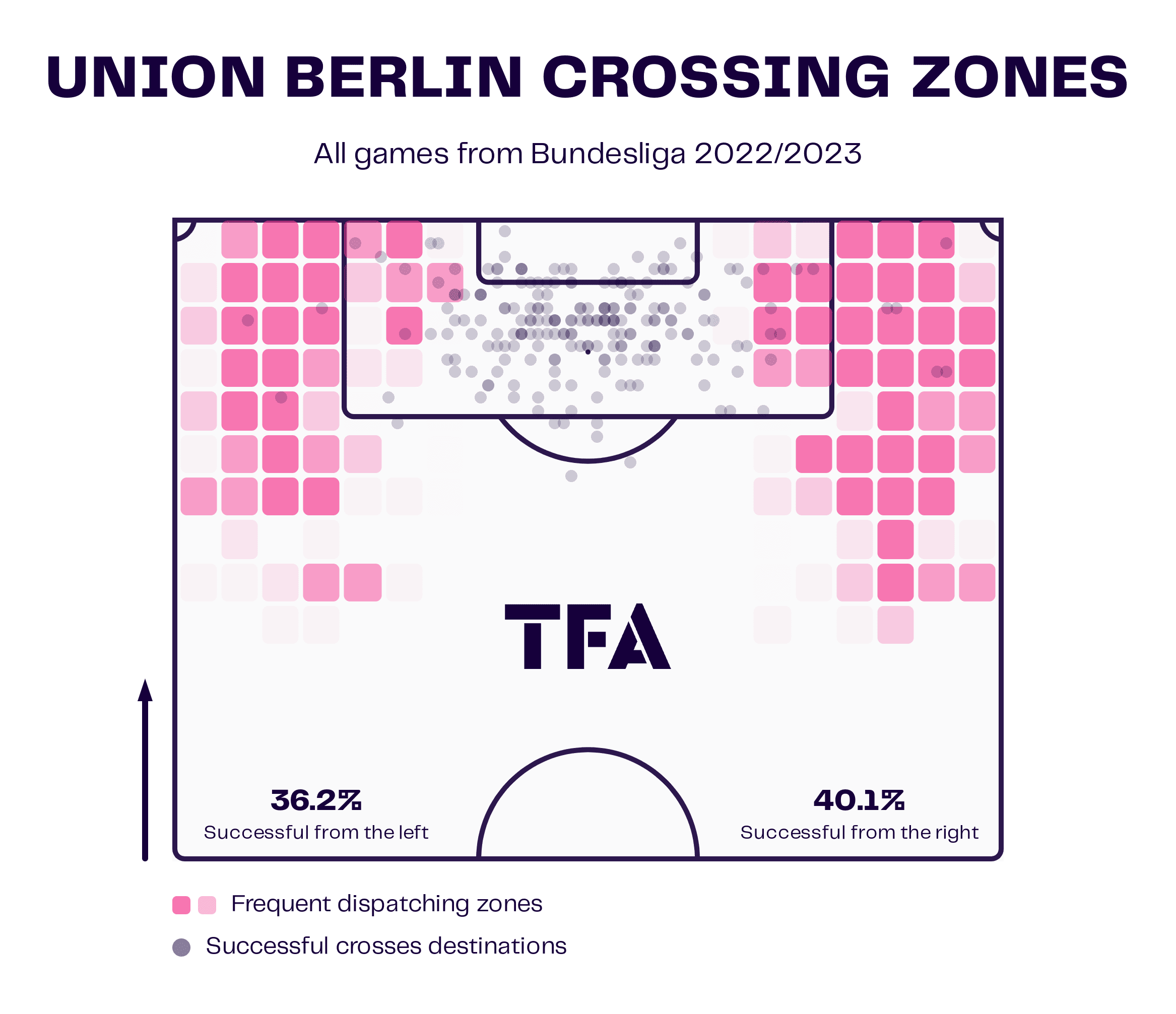
Union’s commitment to enhancing their aerial threat is manifested in their increasing prowess in scoring headers.
Their refined crossing accuracy and improved positioning within the penalty area synergistically translate into a heightened ability to exploit aerial opportunities.
The efficacy of these attempts assumes greater significance considering Union’s tactical inclination to rely on crossing and long balls, supplemented by direct shots, as opposed to intricate central pass combinations.
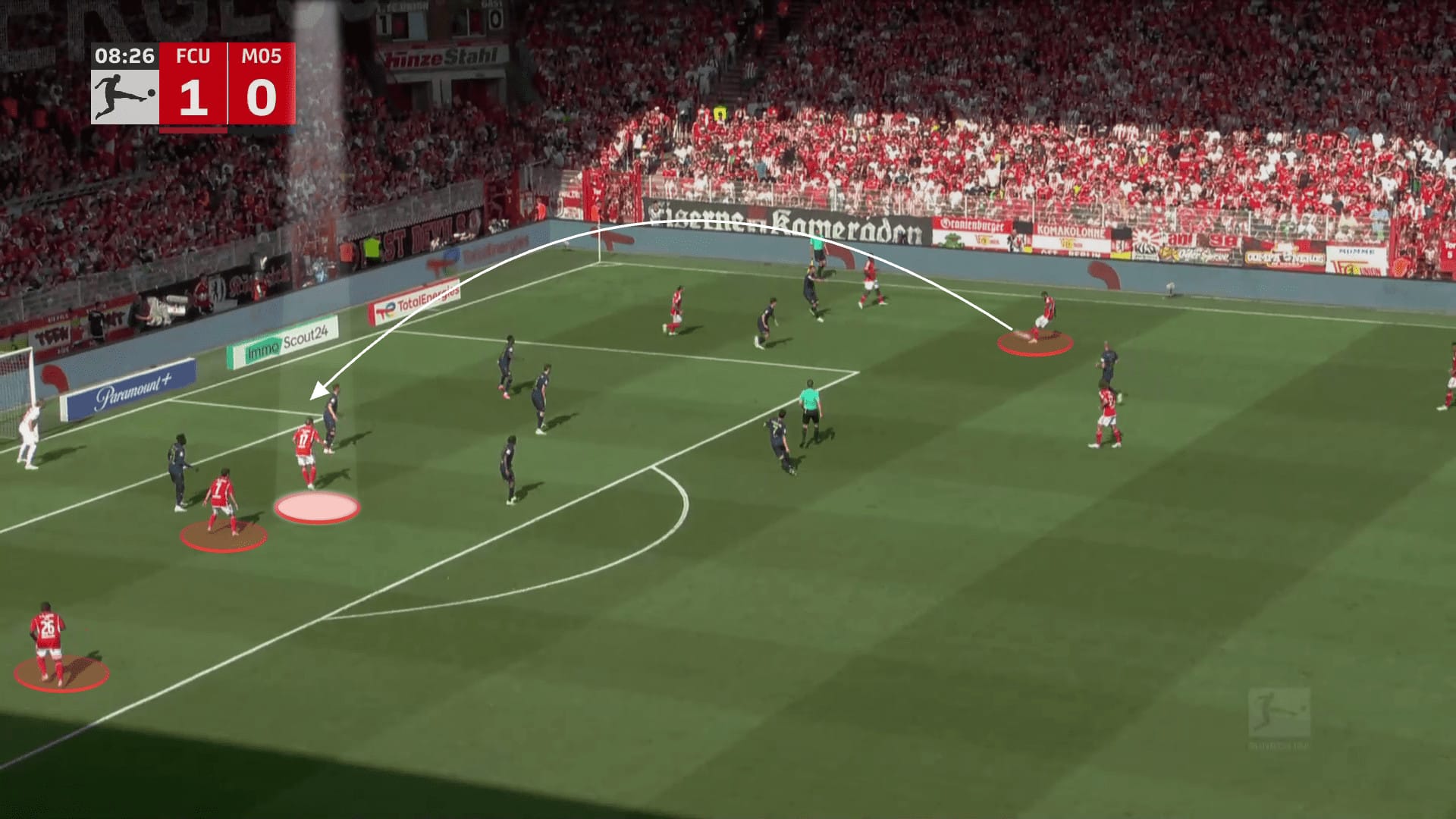
Union’s improved cross accuracy has reverberated in their set-piece execution, particularly evident in their corners.
Their commitment to refining accuracy while staying true to their overarching strategy underscores their tactical acumen and adaptability, making Union Berlin a team to watch out for in the dynamic landscape of European football.
Union Berlin’s approach in the defending phase is marked by a calculated application of pressure and a deft manipulation of positioning that surpasses what their PPDA rate of 14.34 might suggest.
Their objective isn’t merely to prolong their time in possession; as a result, they avoid hastily engaging in defensive challenges.
Rather than committing too quickly to aggressive tackles, Union employs an astute approach by leveraging their positioning to exert pressure on opponents.
Their intent is to induce mistakes and disrupt the rhythm of the opposition.
This method often yields outcomes such as forcing turnovers or, at the very least, dampening their adversaries’ momentum.
The ultimate aim is to prevent opponents from advancing into threatening areas and restricting their access to Union’s goal.

Union’s tactical positioning, frequently characterised by a mid-block, serves as a pivotal element in their defensive repertoire.
This strategic setup allows them to disrupt the opposition’s build-up play effectively.
Simultaneously, it provides the necessary space behind the defensive line, enabling them to execute precise ball distribution out wide after regaining possession.
Transfers
The ongoing transfer window marks a historic period for 1.
FC Union Berlin, thanks to their Champions League qualification.
In preparation for their upcoming debut in the pinnacle of European football, the club has substantially bolstered its roster in recent weeks.
David Fofana and Brenden Aaronson have become the first players from the English Premier League to don the Union Berlin jersey, signalling a remarkable step for the team.
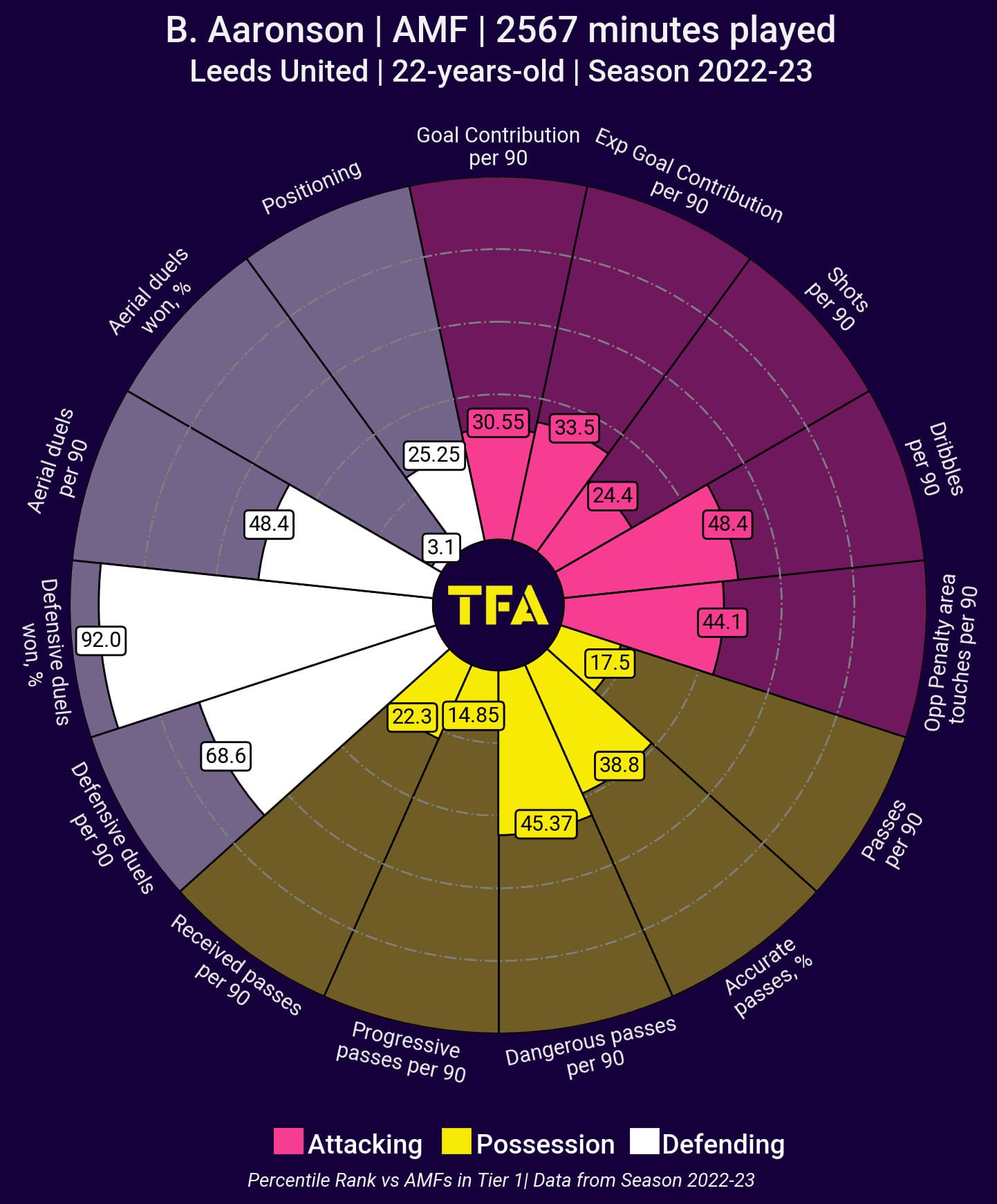
The acquisitions of Robin Gosens and Kevin Volland, both possessing national team experience, formed the high point of the club’s transfer spree last week, contributing to a total of nine new signings so far.
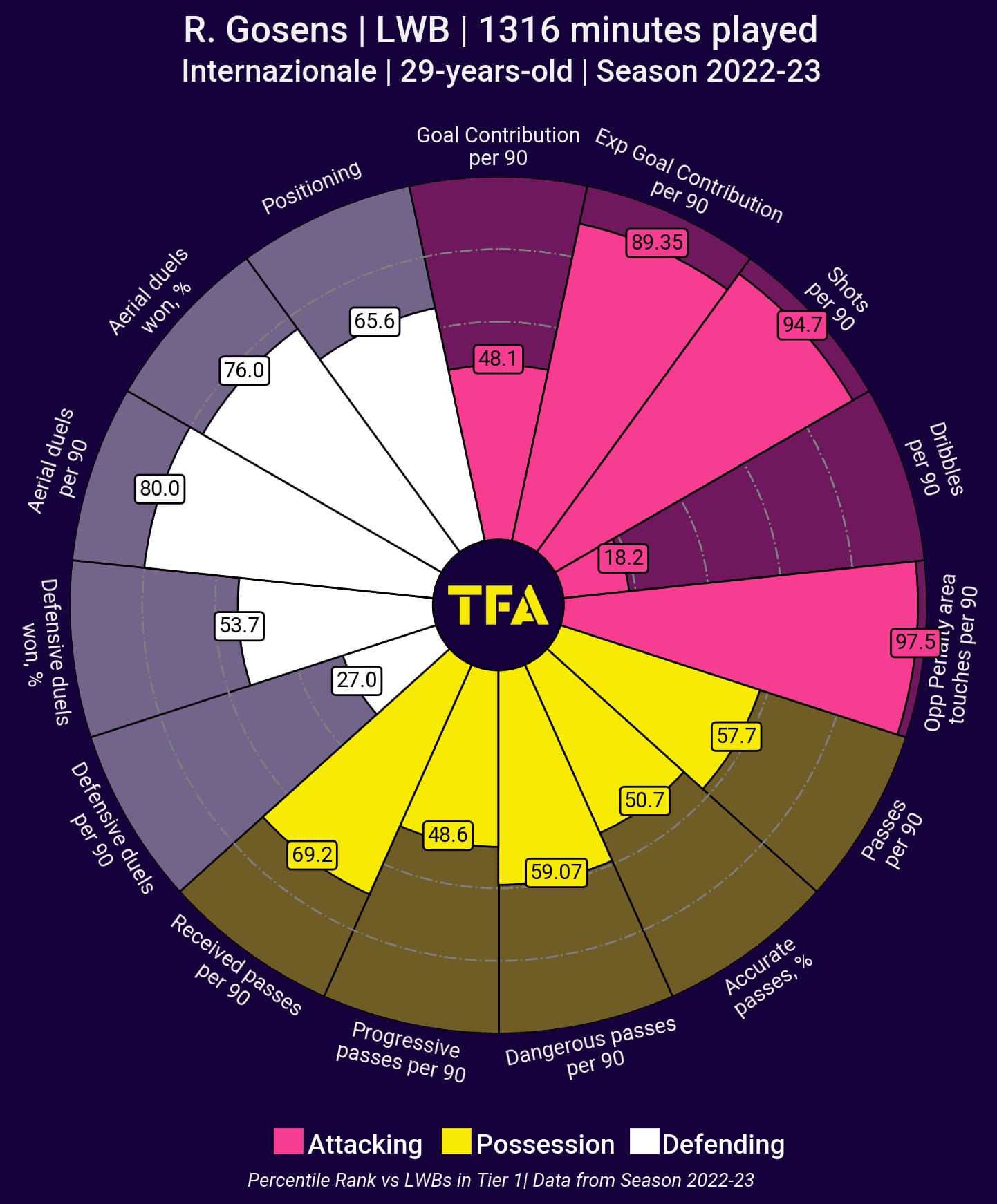
Does this conclude their transfer activities? Probably not, both in terms of new arrivals and departures.
While the addition of Robin Gosens has addressed the most significant gap on the left flank, the club is still seeking a new recruit, possibly even two, for the centre-back position.
Rumours have recently linked Italy’s European champion and Juventus legend, Leonardo Bonucci, with a potential move to the club.
The window for clubs to make new signings remains open until September 1st, after which the summer transfer period will conclude.
Even considering the triple workload in the Bundesliga, the DFB-Pokal, and the Champions League, the squad remains reasonably well-stocked.
Currently, coach Urs Fischer has four goalkeepers and 29 outfield players at his disposal.
This situation has led to new arrivals like forwards Mikkel Kaufmann and Benedict Hollerbach not making it into the matchday squad against Mainz last Sunday.
Candidates for departure by September 1st include Tim Skarke and Jordan Siebatcheu.
The latter is being speculated as a potential addition to Borussia Mönchengladbach.
Milos Pantovic might also find it challenging.
However, until September 1st, there could also be departures of players the club intends to retain.
Among them is Sheraldo Becker, who had indicated his interest in a move with a lucrative offer early on.
The top scorer from the previous season has temporarily lost his starting position in the offence.
Against Mainz, alongside the hat-trick scorer Kevin Behrens, David Fofana delivered an impressive debut.
Potential Line-Up
The defensive unit at Union Berlin is solid.
In goal, Frederik Rønnow (31) is the established choice.
Yet, rumours of his potential departure are circulating.
If he does indeed leave, a replacement will need to be secured.
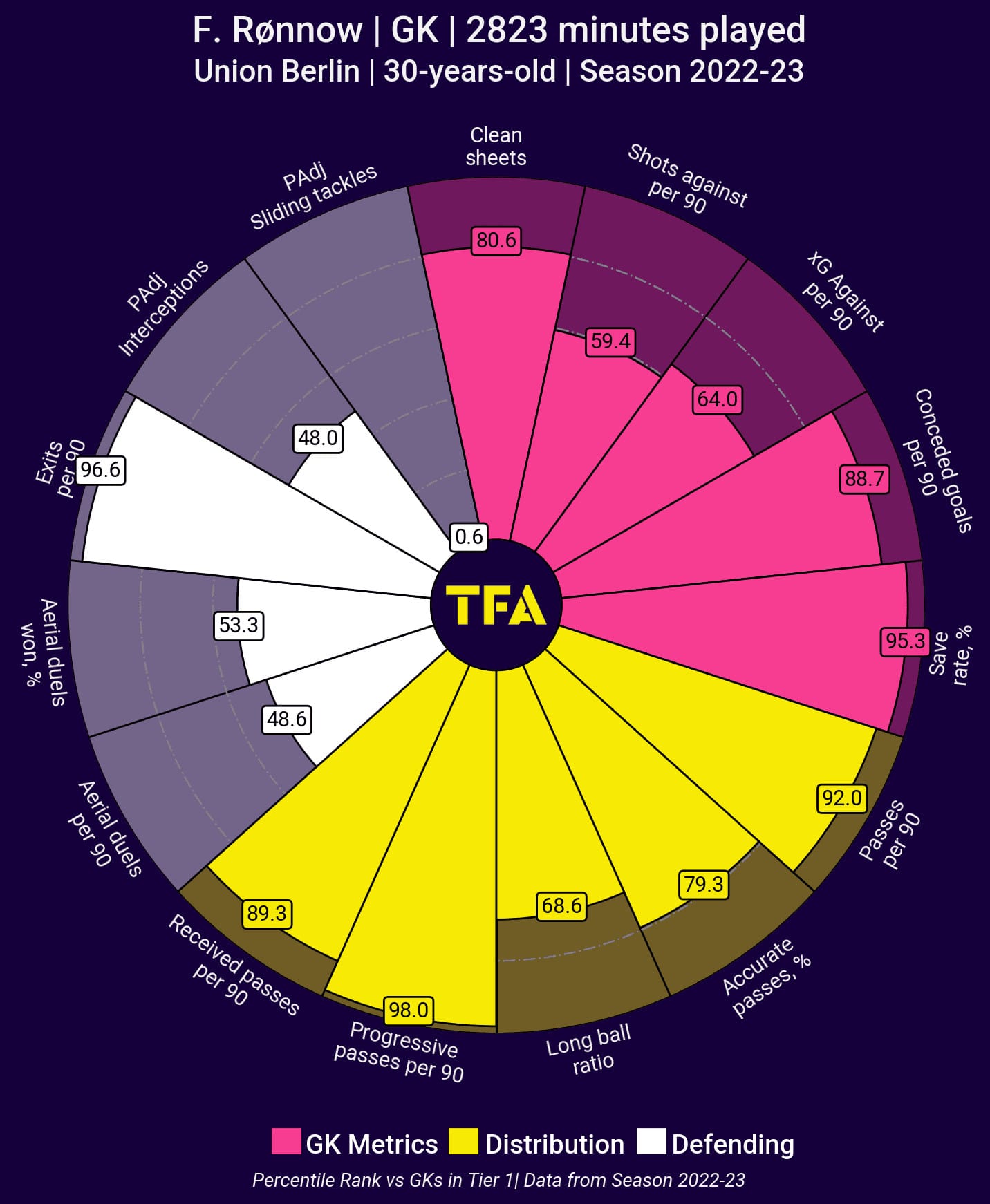
The key defensive trio consists of Danilho Doekhi (25), Robin Knoche (31), and Diogo Leite (24).
Josip Juranović (28) and the newly acquired Robin Gosens operate on the flanks.
Captain Christopher Trimmel (36) and Roussillon provide alternatives due to the demanding schedule, ensuring they will see starting opportunities.
Options are also required in the central midfield.
Rani Khedira (29) holds the anchor role.
At the same time, Brenden Aaronson (22, on loan from Leeds), Aïssa Laïdouni (26), Lucas Tousart (26, new signing from Hertha BSC), Janik Haberer (29), and Alex Král (25, arrived from Spartak Moscow) vie for the two positions as central midfielders.
András Schäfer (24) will add to the competition after his return from a metatarsal fracture.
In the forward line, Behrens remains a constant presence, and the newcomer Fofana is settling in alongside him.
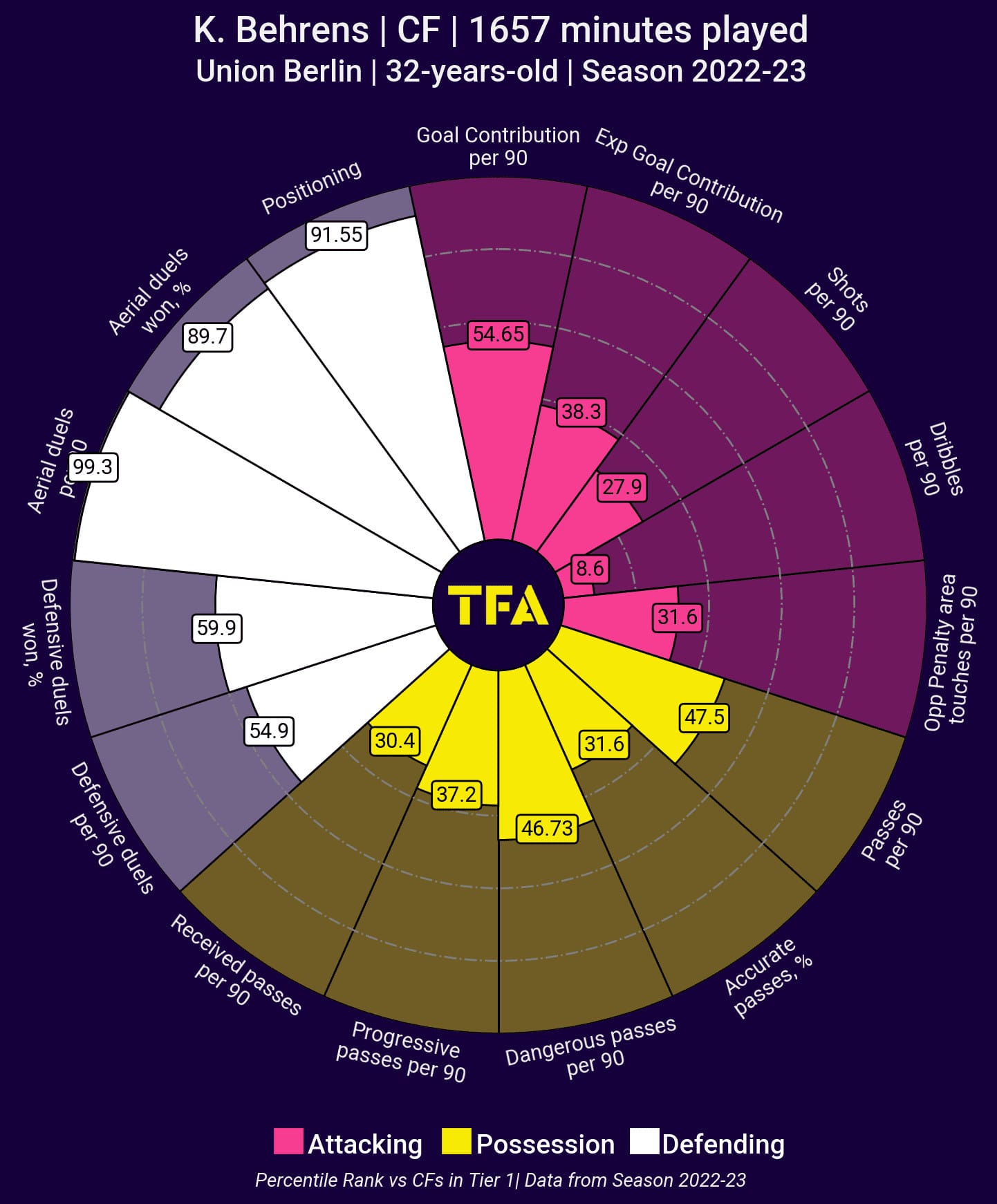
Becker would typically be a starter, though he might leave for England.
Instead, the arrival of Kevin Volland from AS Monaco adds heightened competition in the striking department.
Newcomers like Mikkel Kaufmann (22) and Benedict Hollerbach (22) will initially need to settle for shorter appearances.
Conclusion
Union Berlin overperformed last season in order to reach the UEFA Champions League.
To secure European spots again this season, they would need to overperform once more.
The club is in a good initial position after a 4-1 win over Mainz.
However, even if they’ve got lots of experienced and promising new players, it’s possible that the Berlin team might need to be more cautious this year and might fall out of the top 7.


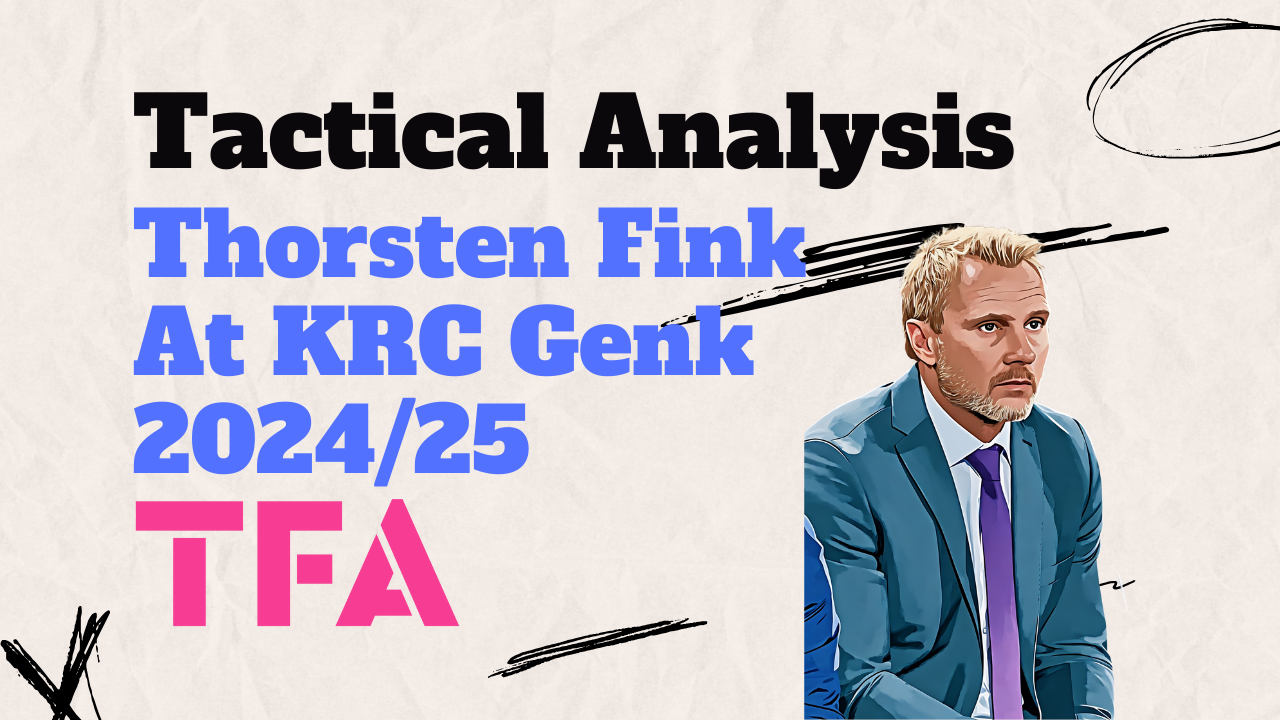
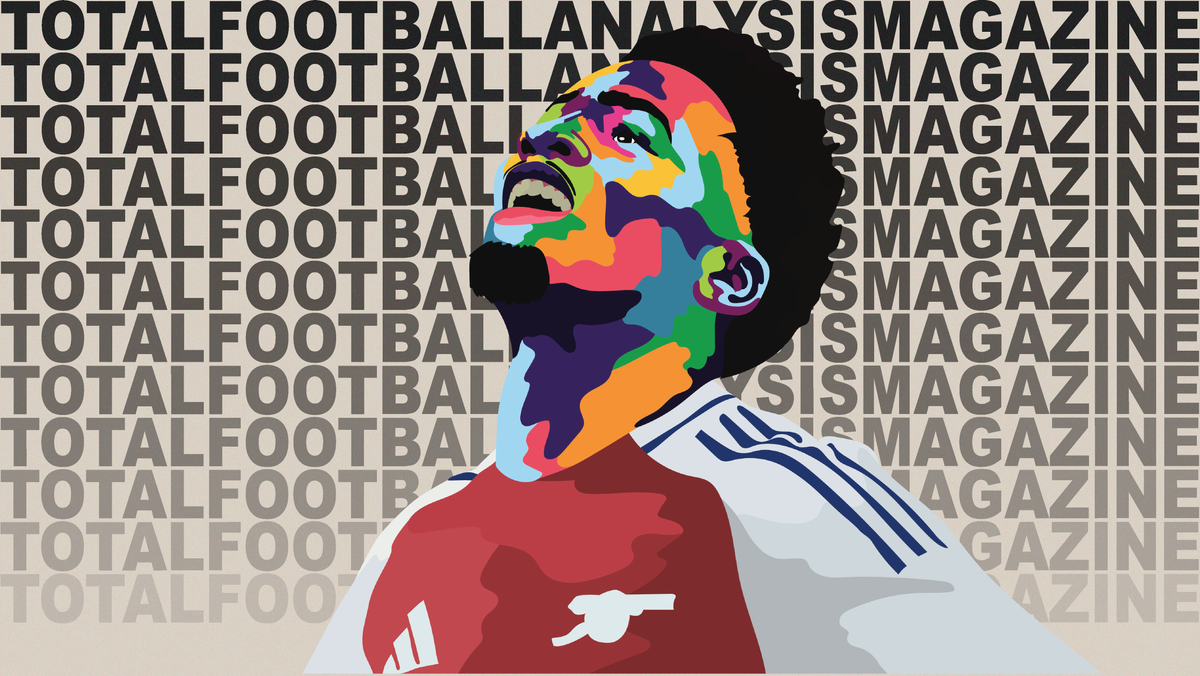
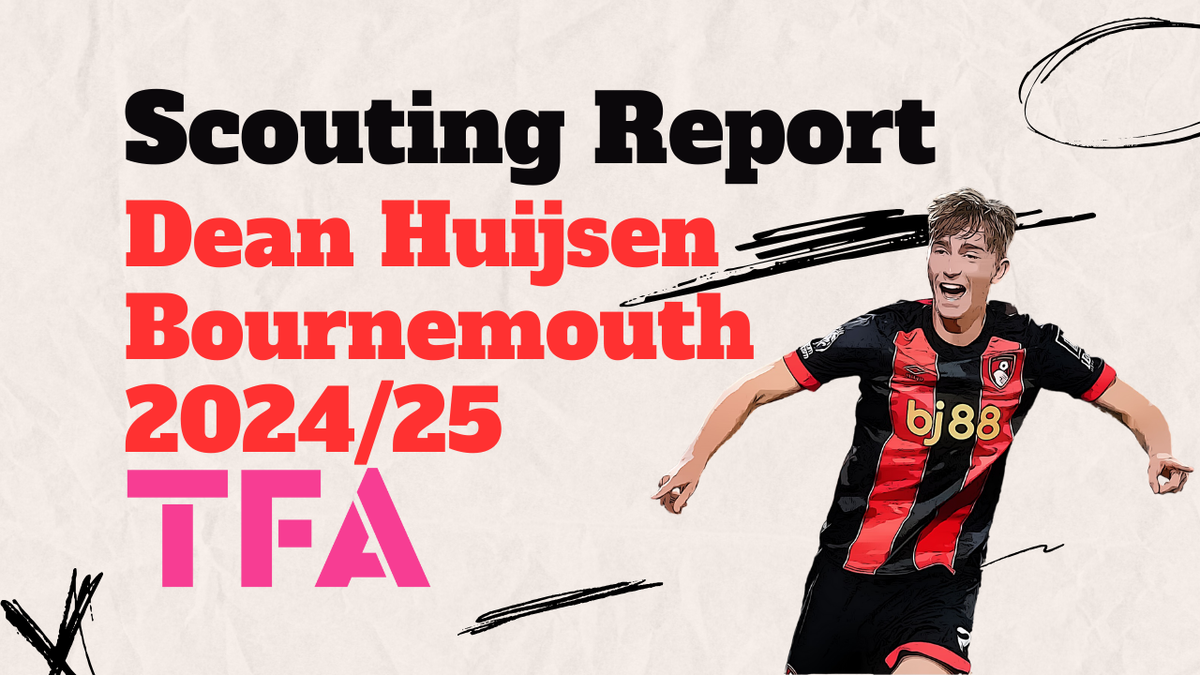
Comments